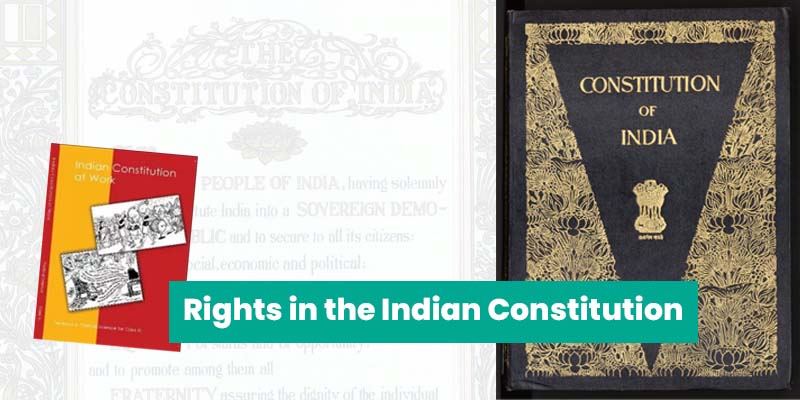A constitution is a document that sets limits on the powers of the government and ensures a democratic system in which all persons enjoy certain rights.
What is the Bill of Rights?
The Bill of Rights is a list of rights of the citizens mentioned and protected by the constitution.
- Democracy must ensure that individuals have certain rights and that the government will always recognise these rights.
- Therefore it is often a practice in most democratic countries to list the rights of the citizens in the constitution itself.
- Such a list of rights mentioned and protected by the constitution is called the ‘bill of rights’.
- A bill of rights prohibits the government from thus acting against the rights of the individuals and ensures a remedy in case there is a violation of these rights.
What are Fundamental Rights?
Fundamental rights are the rights listed in the constitution that are specially protected.
- The word ‘fundamental’ suggests that these rights are so important that the Constitution has separately listed them and made special provisions for their protection.
- The Fundamental Rights are so important that the Constitution itself ensures that they are not violated by the government.
- These are different from other rights available to us.
- While ordinary legal rights are protected and enforced by ordinary law, Fundamental Rights are protected and guaranteed by the Constitution of the country.
- Articles 12-35 of the Indian Constitution deal with Fundamental Rights.
Fundamental Rights in India
- Right to Equality
- Right to Freedom
- Right against Exploitation
- Right to Freedom of Religion
- Cultural and Educational Rights
- Right to Constitutional Remedies
What is Preventive Detention?
Preventive detention means that if the government feels that a person can be a threat to law and order or to the peace and security of the nation, it can detain or arrest that person in advance without doing any offence.
This preventive detention can be extended only for three months. After three months such a case is brought before an advisory board review.
Rights of Accused
- Anyone who is charged with some offence is not guilty.
- No one is guilty unless the court has found that person guilty of an offence.
- It is also necessary that a person accused of any crime should get an adequate opportunity to defend himself/herself.
Fundamental Rights and Directive Principles of State Policy
These are complementary to each other. Fundamental Rights restrain the government from doing certain things while Directive Principles exhort the government to do certain things.
The Fundamental Rights mainly protect the rights of the individuals while Directive Principles of the State Policy ensure the well-being of the entire society.



![UPSC PSIR Optional Syllabus [PDF] Political Science and International Relations PSIR Optional Syllabus UPSC Exam](https://study925.com/wp-content/uploads/2023/02/PSIR-Syllabus-UPSC-.jpeg)


2 thoughts on “Rights in the Indian Constitution NCERT Notes for UPSC”